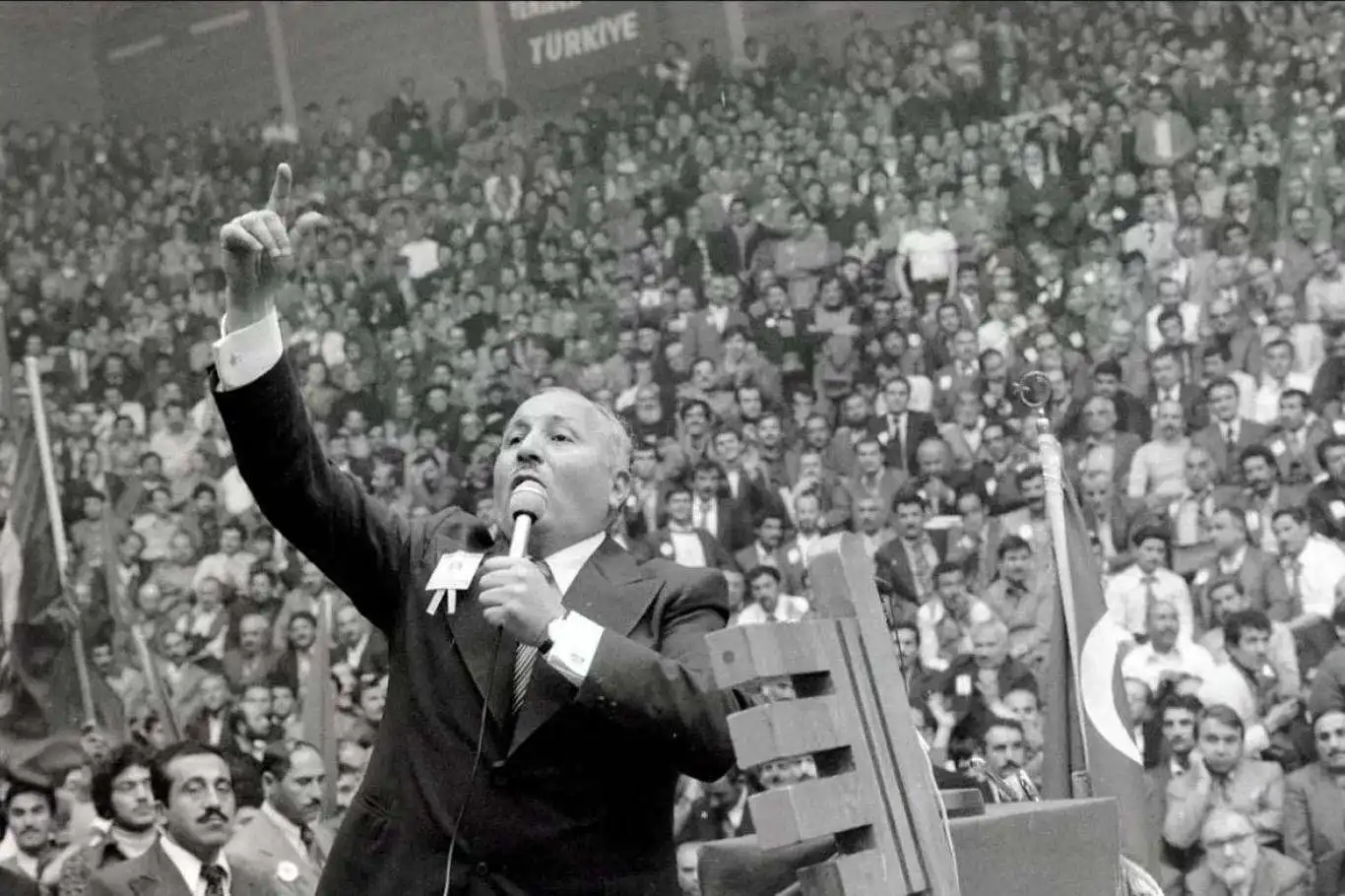Necmettin Erbakan: The visionary leader who shaped Türkiye’s political landscape


Türkiye commemorates the 14th anniversary of the passing of former Prime Minister Necmettin Erbakan, a pivotal figure in the country’s political history whose ideological legacy continues to shape its landscape.
Necmettin Erbakan, who served as the 54th Prime Minister of Türkiye from 1996 to 1997, was a leader with a unique ideology, advocating for the strengthening of Islamic values and fostering stronger ties with Muslim nations. His influence on Turkish politics remains profound, as he was the founder of the Millî Görüş (National Opinion) movement, a political and ideological framework that has guided several prominent Islamic political parties in Türkiye.
Born in 1926 in Sinop, a Black Sea coastal city, Erbakan came from a distinguished family with deep-rooted values. His academic excellence led him to the Istanbul Technical University, where he earned a degree in mechanical engineering, followed by a Ph.D. from RWTH Aachen University in Germany. Returning to Türkiye, he became a professor before transitioning into politics, where his legacy would take root.
The Political Journey of Necmettin Erbakan
Erbakan formally entered politics in 1969 as an elected deputy for Konya. His political philosophy, articulated in his manifesto Millî Görüş, was a call for economic independence, self-sufficiency, and a move away from Western secular influences. The movement he founded inspired the creation of several political parties, including the National Order Party (MNP), the National Salvation Party (MSP), and ultimately the Welfare Party (RP), which played a significant role in Türkiye’s governance.
During the 1970s, he served as Deputy Prime Minister in coalition governments and played a critical role in Türkiye’s political direction, especially during the 1974 Cyprus intervention. His political career, however, faced repeated challenges, including bans imposed by Türkiye’s secularist establishment. In 1980, following a military coup, he was barred from politics, only to return in 1987 and lead the Welfare Party to a historic election victory in 1995.
A Tumultuous Premiership and Forced Resignation
Erbakan’s tenure as Prime Minister from 1996 to 1997 was marked by efforts to strengthen Türkiye’s relations with the Islamic world. He initiated economic reforms and attempted to position Türkiye as a leader among Muslim nations, establishing the Developing Eight (D-8) to foster cooperation between Islamic countries. However, his policies and Islamist-leaning rhetoric drew significant opposition from Türkiye’s powerful military, which pressured him to step down in what became known as the 1997 "post-modern coup." His party was subsequently banned, and he was barred from politics once again.
Legacy and Impact on Modern Türkiye
Despite legal obstacles and political bans, Erbakan continued to influence Turkish politics from behind the scenes. He mentored numerous political figures, including current President Recep Tayyip Erdoğan, who began his career within the Welfare Party before forming the Justice and Development Party (AK Party). Many of Erbakan’s ideas on governance, economic independence, and foreign policy remain embedded in Türkiye’s political discourse today.
Erbakan passed away on February 27, 2011, at the age of 85. His funeral in Istanbul was attended by thousands, including high-ranking government officials. Though he declined a state funeral, his impact on Türkiye’s political identity remains undeniable. His vision for a united Islamic world and a Türkiye less reliant on Western influence continues to shape political narratives.
As Türkiye marks the 14th anniversary of his passing, Erbakan is remembered as a political architect, a resilient leader, and a man whose ideological blueprint continues to resonate in Turkish politics today. (ILKHA)
LEGAL WARNING: All rights of the published news, photos and videos are reserved by İlke Haber Ajansı Basın Yayın San. Trade A.Ş. Under no circumstances can all or part of the news, photos and videos be used without a written contract or subscription.
Two years have passed since the morning that forever altered the course of the Palestinian struggle — the dawn of October 7, 2023, when the besieged enclave of Gaza broke through its prison walls in a thunderous uprising now etched into history as Operation Al-Aqsa Flood.
Two years after October 7, 2023, the Gaza Strip stands as a scar on the conscience of humanity — a living graveyard of shattered lives, silenced voices, and enduring resistance.
Israeli regime has deployed its advanced "Barak MX" air defense system in southern Cyprus, establishing a powerful radar network capable of monitoring Turkish military and civilian movements along the nation's southern coastline.
A year has passed since the martyrdom of Sayyed Hassan Nasrallah, the Secretary-General of Hezbollah and the iconic leader of the Islamic Resistance in Lebanon.